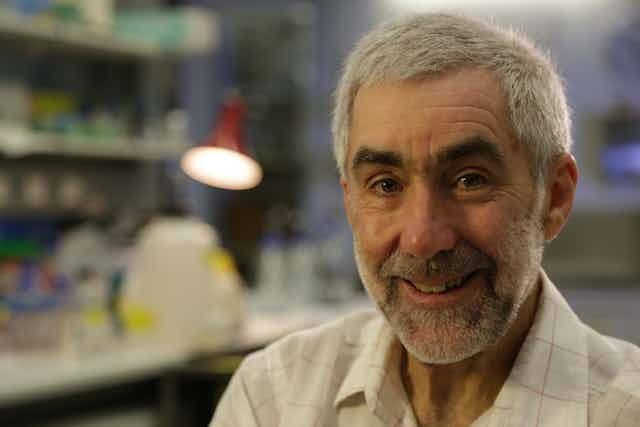Australian mathematician and statistician Terry Speed has been awarded the 2013 Prime Minister’s Prize for Science for giving biologists the statistical tools needed to fight cancer, and for a lifetime of contributions to bioinformatics.
Professor Speed, the head of Bioinformatics at the Walter and Eliza Hall Institute (WEHI), received the $300,000 prize at a ceremony in Canberra this evening for using statistics to help researchers understand the underlying causes of cancer and reduce the need for surgery.
“It is a great honour to receive the Prime Minister’s Prize for Science,” he said.
“Australia is full of many amazing and talented researchers, so it is humbling to be recognised in this way.”
Professor Speed, 70, has spent a lifetime using mathematics and statistics to solve real world issues for farmers, diamond miners, criminologists and others.
“I see statistics as an enabling science,” he explained, “one which helps others in science, engineering, industry, business, government and many other spheres do better.”
But it is his lifelong interest in medicine and medical research that has brought him to his latest achievement - using statistics to interpret the actions of thousands of genes.
“The data and reasoning of genetics are naturally appealing to mathematicians. Right now, cancer is a particular focus,” he said.

It is through his development of a new statistical technique that biologists can now sort out the thousands of differences between normal and cancer cells, allowing cancer to be treated more efficiently.
It is an important advancement in the fight against cancer, but Professor Speed has refused to accept all the credit for himself.
“Science is a collaborative effort,” he said. “I would like to thank the many students, postdocs and colleagues who have supported me throughout my career.
"In addition, I would like to thank my wife, Sally, whose love and support over the past 50 years have enabled me to pursue my research with passion.”
On his plans for the prize money, he said, “I’m considering giving it to the childcare centre that we are trying to get built at WEHI. But, if it [the childcare centre] gets financed in other ways, I’ll give the money away to other academic or scientific purposes.”
Professor Speed’s next project will involve working with industry to create a tool that will determine if a thyroid growth is benign or not.
Other winners of the Prime Minister’s Prizes for Science include ecologist Angela Moles from the University of New South Wales (UNSW), for her work on plants and ecosystems, and quantum physicist Andrea Morello, also from UNSW, for his work on quantum computing. Professor Moles was awarded the Frank Fenner Prize for Life Scientist of the Year and Professor Morello was awarded the Malcolm McIntosh Prize for Physical Scientist of the Year.
Rostrata Primary School science teacher Richard Johnson received the award for Excellence in Science Teaching in Primary Schools for creating a model science laboratory that has since been implemented by more than 40 schools.
Townsville State High School science teacher Sarah Chapman received the award for Excellence in Science Teaching in Secondary Schools for her hands-on approach to teaching science by having her students assess the impact of the Australian V8 Supercar race on the environment.
Hear from the prizewinners:
Prime Minister’s Prize for Science: Professor Terry Speed
Frank Fenner Prize for Life Scientist of the Year: Associate Professor Angela Moles
Malcolm McIntosh Prize for Physical Scientist of the Year: Associate Professor Andrea Morello

